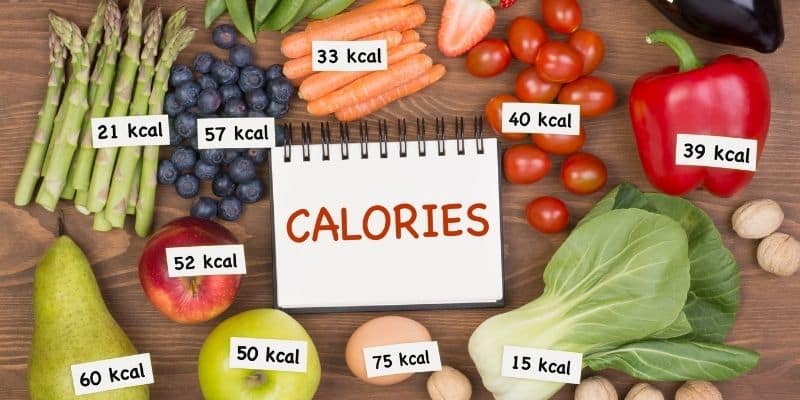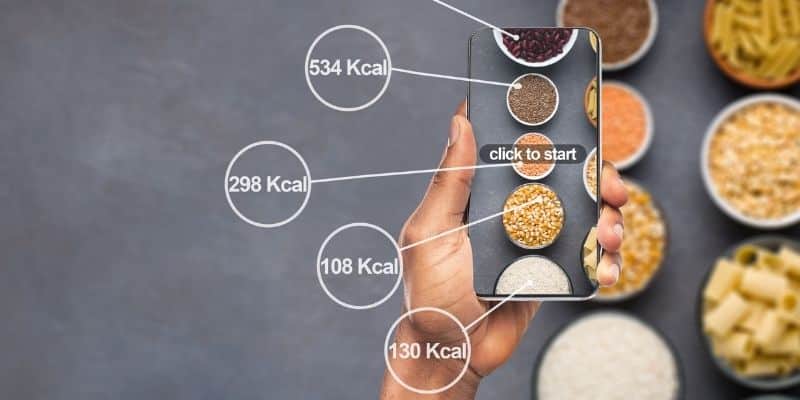Gaining muscle while minimizing fat gain is a common goal among fitness enthusiasts. Achieving this requires a careful balance of caloric intake, macronutrient distribution, and exercise. This comprehensive guide will delve into how many calories for muscle gain, the importance of macronutrients, and effective strategies to optimize your diet for muscle growth.
Table of Contents
- Understanding Calories for Muscle Gain
- The Role of Macronutrients in Muscle Gain
- Strategies to Optimize Your Muscle Gain Diet
- The Science Behind Calories for Muscle Gain
- Practical Tips on Calories for Muscle Gain
- Additional Insights into Calories Needed for Muscle Gain
- The Benefits of Calorie Cycling for Muscle Gain and Fat Loss
- Final Takeaway: Balancing Calories for Optimal Muscle Gain
- FAQs

Understanding Calories for Muscle Gain
To effectively gain muscle, it’s essential to consume more calories than your body burns. This concept is known as a caloric surplus. However, determining the right amount of calories for muscle gain can be challenging and varies from person to person.
What Is a Caloric Surplus?
A caloric surplus occurs when you consume more calories than your body expends. This excess energy is crucial for muscle repair and growth following resistance training. Daily maintenance calories refer to the number of calories required to maintain your current weight. A general guideline is to add 250-500 calories to your maintenance level, depending on your goals and body composition.
How Many Calories for Muscle Gain Should You Consume?
Understanding how many calories for muscle gain you should consume is crucial for effectively building lean mass while minimizing fat gain. Most individuals require approximately 20 calories per pound of body weight to gain muscle mass. For example, a 180-pound male would need around 3,600 calories daily (20 x 180) to effectively support muscle growth. Research shows that during the bulking phase, male bodybuilders average around 3,800 calories per day while females average about 3,200 calories.
| Body Weight (lbs) | Daily Caloric Intake (calories) |
| 150 | 3,000 |
| 180 | 3,600 |
| 200 | 4,000 |
| 220 | 4,400 |
Energy Expenditure During Muscle Building
When engaging in resistance training, muscles undergo microtears that require repair through adequate nutrition. Muscle tissue burns about 7–10 calories daily per pound, meaning that increasing lean mass can enhance metabolic rate over time. Building one pound of muscle effectively may require an excess of around 2000 or more calories, considering the energy needed for repair and recovery.
The Importance of Quality Over Quantity
While increasing caloric intake is essential for muscle gain, focusing on the quality of those calories is equally important. Prioritize protein-rich foods that support muscle repair while choosing complex carbohydrates that provide sustained energy during workouts.
Determining Your Caloric Needs for Muscle Gain
To effectively build muscle, knowing how to calculate the right calories for muscle gain is essential. To find out how many calories you should eat for muscle gain, first calculate your Total Daily Energy Expenditure (TDEE). Use the formula: TDEE=BMR×ActivityLevel. Once you have your TDEE, add an appropriate surplus (250-500 calories). For those who are unsure about their caloric intake, starting with an increase of 200-250 calories can be beneficial. This gradual approach helps monitor changes in body composition without excessive fat gain.
The Role of Macronutrients in Muscle Gain
Choosing the right calories for muscle gain also involves understanding macronutrient distribution:
Protein: The Building Block of Muscle
Protein is crucial for muscle repair and growth. Aim for approximately 1.6 to 2.2 grams of protein per kilogram of body weight daily. Good sources of protein include lean meats like chicken and turkey, fish such as salmon and tuna, dairy products like Greek yogurt and cottage cheese, as well as plant-based options like tofu and lentils.
Carbohydrates: Fuel for Workouts
Carbohydrates provide the energy needed for intense training sessions. They are essential for replenishing glycogen stores post-workout. Carbohydrates should make up about 45-65% of your total caloric intake. Healthy sources include whole grains such as brown rice and quinoa, fruits and vegetables, and legumes.
Fats: Essential for Hormonal Balance
Healthy fats support hormone production and overall health. They should comprise about 20-35% of your total caloric intake. Sources of healthy fats include avocados, nuts and seeds, and olive oil.
Sample Macronutrient Distribution Table
The following table summarizes macronutrient distribution:
| Macronutrient | Percentage of Total Calories | Example Foods |
| Protein | 25% | Chicken breast, Greek yogurt |
| Carbohydrates | 55% | Brown rice, sweet potatoes |
| Fats | 20% | Olive oil, almonds |
Strategies to Optimize Your Muscle Gain Diet
Achieving a caloric surplus while minimizing fat gain requires strategic planning in your diet.
Meal Frequency and Timing
Eating more frequently can help you meet your caloric needs without feeling overly full at each meal. Aim for 5-6 smaller meals throughout the day while incorporating snacks that are high in protein and healthy fats.
Focus on Nutrient-Dense Foods
Choose foods that provide more nutrients per calorie to maximize muscle gain without excessive fat. Opting for whole foods over processed options is advisable. Including a variety of colorful fruits and vegetables in your meals can also enhance nutrient density.
Monitor Your Progress
Regularly tracking your weight and body composition is essential to ensure you are gaining muscle without excessive fat. Use tools like scales or body fat calipers to assess progress accurately while adjusting your caloric intake based on results.
Incorporate Resistance Training
Resistance training is essential for stimulating muscle growth. Focus on compound movements such as squats and deadlifts that engage multiple muscle groups. Aim for at least 3-4 strength training sessions per week to maximize results.
Stay Hydrated
Adequate hydration supports overall health and performance during workouts. Aim for at least 3 liters of water per day, adjusting based on activity level and climate conditions.

The Science Behind Calories for Muscle Gain
Understanding the science behind how many calories you need for muscle gain can help tailor your approach effectively.
Caloric Needs Based on Body Composition
Your body composition plays a significant role in determining how many calories you need. Individuals with higher lean mass may require more calories due to increased metabolic demands, while those with higher body fat may need fewer excess calories to avoid unwanted fat gain while still promoting muscle growth.
Calorie Surplus Recommendations by Body Type
Different body types may respond differently to caloric surpluses. Ectomorphs typically have a fast metabolism and may require larger surpluses (upwards of 500 calories) to gain weight effectively. Mesomorphs generally have a balanced physique and may do well with moderate surpluses (250–300 calories). Endomorphs tend to store fat easily and might benefit from smaller surpluses or even cycling their caloric intake based on training days.
Tracking Your Caloric Intake Effectively
To ensure you’re consuming the right amount of calories for muscle gain, use apps like MyFitnessPal or Cronometer to log food intake accurately. Regularly assess progress through measurements or photos rather than relying solely on scale weight.
Practical Tips on Calories for Muscle Gain
Incorporating practical strategies into your routine can make reaching your caloric goals easier.
Creating a Meal Plan
Developing a structured meal plan can help ensure you meet your caloric needs consistently by outlining meals ahead of time-based on your calculated caloric intake while including snacks that are high in protein and healthy fats between meals.
Preparing Meals in Advance
Meal prepping can save time while ensuring you stick to your dietary goals by cooking large batches of protein sources like chicken or turkey while preparing carbohydrate-rich foods such as rice or quinoa in advance.
Using Calorie-Dense Foods Wisely
Incorporating calorically dense foods can help you reach your targets without feeling overly full by including nuts, seeds, avocados, and oils as part of meals or snacks while considering smoothies with protein powder as an easy way to boost calorie intake.
Additional Insights into Calories Needed for Muscle Gain
Understanding the broader implications of calorie consumption can further enhance your approach to building muscle effectively:
The Role of Hormones in Muscle Growth
Hormones such as testosterone and insulin play significant roles in how effectively you can build muscle from the calories consumed. Testosterone levels are positively correlated with lean mass gains; thus ensuring adequate nutrition can support hormonal balance. Insulin sensitivity improves with proper nutrient timing around workouts—consuming carbohydrates post-exercise can aid recovery by promoting nutrient uptake into muscles.
The Impact of Sleep on Caloric Needs
Sleep quality directly influences recovery processes; lack of sleep can lead to increased cortisol levels which may hinder recovery and promote fat storage. Aim for at least seven hours of quality sleep each night as part of an overall strategy when considering how many calories you need. The timing and quality of your food intake also play significant roles in how effectively you can utilize those calories for muscle gain.
Integrating these insights into how many calories you consume alongside other lifestyle factors such as sleep hygiene and stress management techniques will create an optimal environment conducive not only towards effective calorie utilization but also towards sustainable long-term gains in both strength & size!
The Benefits of Calorie Cycling for Muscle Gain and Fat Loss
Calorie cycling is a powerful dietary strategy that involves varying your caloric intake on different days to optimize calories for muscle gain while minimizing fat accumulation. This method is particularly effective for individuals aiming to enhance their gym results without gaining excess body fat. Here’s a brief overview of the benefits of calorie cycling.
Benefits of Calorie Cycling for Muscle Gain
Enhanced Muscle Recovery:
By consuming more calories on training days, you provide your body with essential nutrients to recover from intense workouts, promoting muscle repair and growth.
Improved Metabolic Flexibility:
Calorie cycling helps your body adapt to varying energy levels, making it more efficient at using both carbohydrates and fats for energy, which supports better gym performance.
Reduced Risk of Fat Gain:
By strategically lowering calories on non-training days, calorie cycling mitigates fat accumulation while allowing muscle growth on high-calorie days, helping you achieve a leaner physique.
Psychological Benefits:
This approach allows flexibility in food choices, making it easier to stick to a nutrition plan long-term. Knowing you can enjoy higher-calorie meals on specific days reduces feelings of deprivation.
Optimized Hormonal Balance:
Fluctuating calorie intake can help regulate hormones related to hunger and metabolism, such as leptin and ghrelin, which are crucial for promoting both muscle gain and fat loss.
In conclusion, incorporating calorie cycling into your diet can significantly enhance your ability to manage calories for muscle gain while keeping fat gain at bay. By alternating between high-calorie and low-calorie days, you can effectively support your fitness goals while enjoying the benefits of a flexible eating plan.
Final Takeaway: Balancing Calories for Optimal Muscle Gain
In summary, understanding how many calories for muscle gain is essential for achieving optimal results without gaining excess fat. By calculating your caloric needs and focusing on nutrient-dense foods while maintaining a balanced macronutrient profile, you can effectively support muscle growth through diet alone. Regular monitoring and adjustments will ensure that you remain on track toward reaching your fitness goals while enjoying the benefits of increased strength and lean mass.
By understanding the importance of calories for muscle gain, you can create a tailored approach that maximizes your results while minimizing fat accumulation. Remember, achieving your fitness goals is not just about eating more; it’s about eating smart!
FAQs
How do I calculate my TDEE?
To calculate your Total Daily Energy Expenditure (TDEE), multiply your Basal Metabolic Rate (BMR) by an activity factor that reflects your lifestyle (sedentary, moderately active, very active). This gives you the total number of calories needed to maintain your current weight.
Can I build muscle without a caloric surplus?
While it is possible to build muscle without a caloric surplus under certain conditions (like being new to training), a slight surplus typically yields better results in terms of lean mass gain and recovery from workouts.
What if I gain too much fat while trying to bulk?
If you notice excessive fat gain while bulking, consider reducing your caloric surplus or increasing your cardio workouts. Aiming for a slower rate of weight gain can help minimize fat accumulation while still promoting muscle growth.
Is it necessary to eat protein after every workout?
While it’s not strictly necessary to consume protein immediately after every workout, aiming for a post-workout meal rich in protein within two hours can enhance recovery and support muscle repair.
How long should I stay in a caloric surplus?
The duration of staying in a caloric surplus varies by individual goals but generally ranges from several weeks to months depending on progress and desired outcomes. Regularly assess body composition changes to determine when adjustments are needed.










